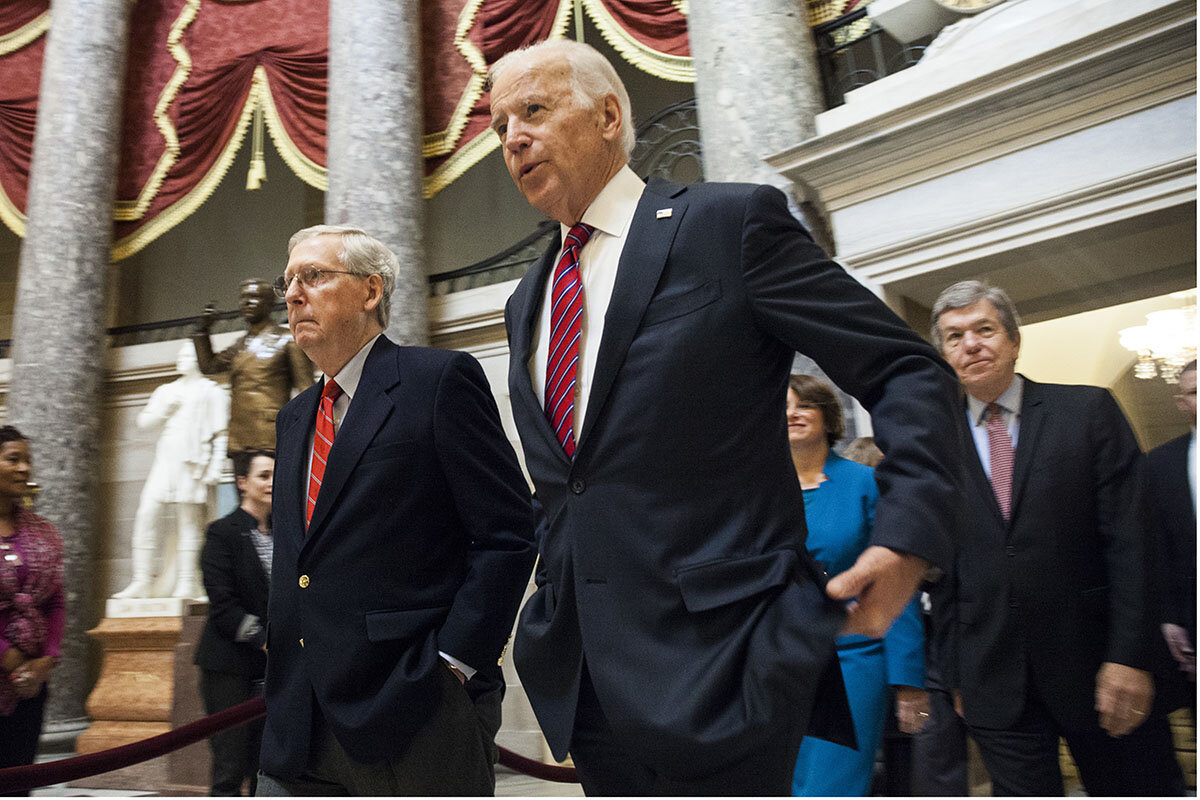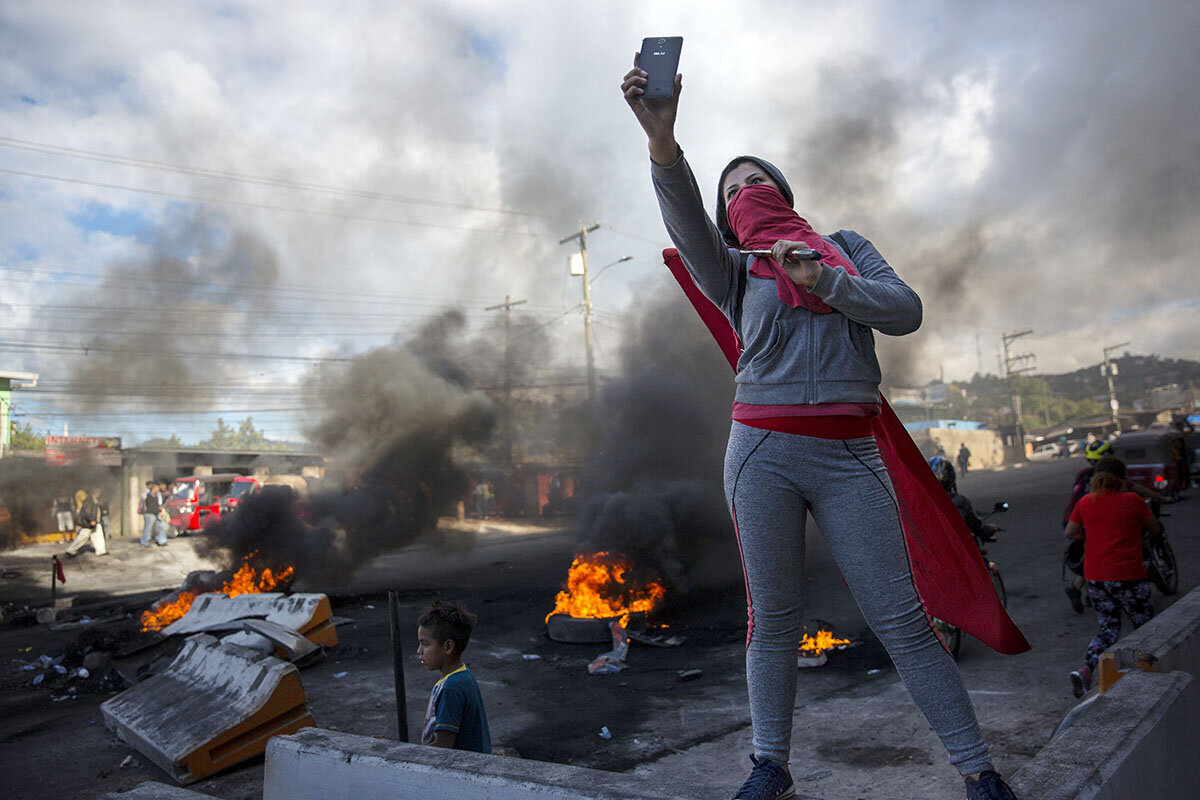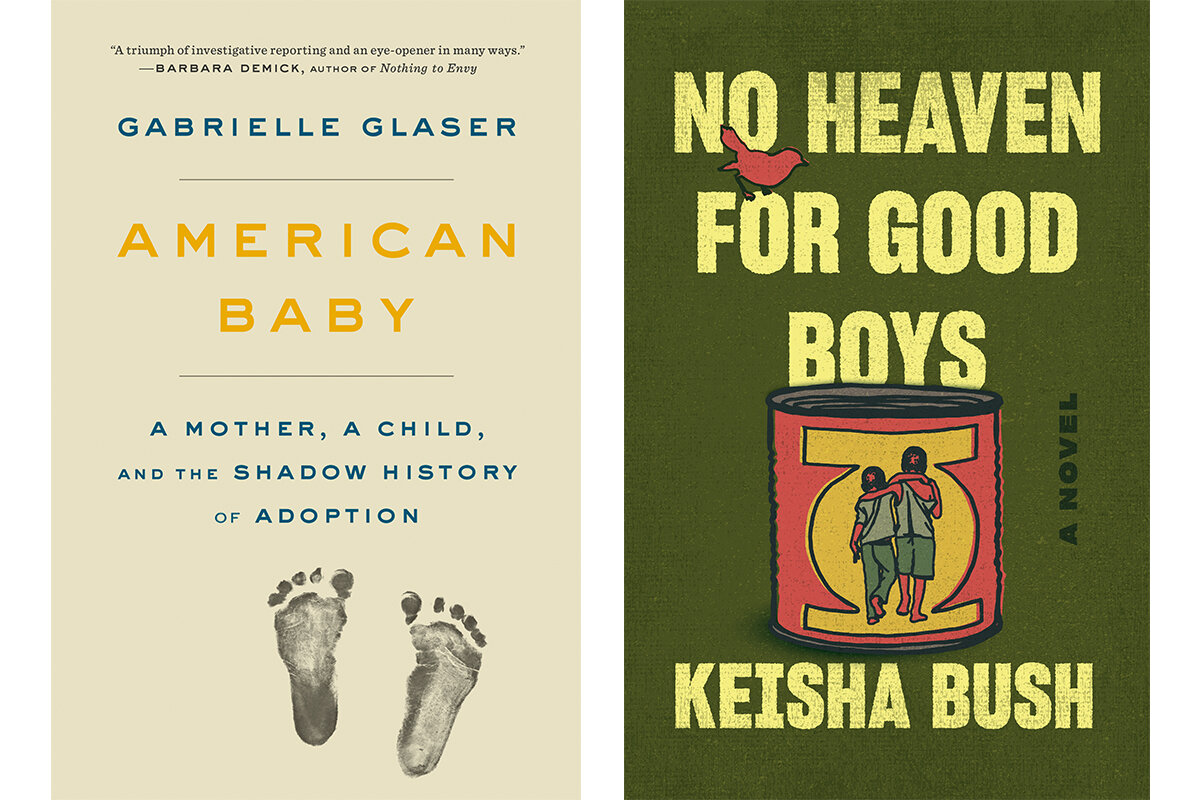In picking a theme for his presidential inauguration – “America United” – Joe Biden was surely appealing to the heart more than the head of his fellow citizens. Fewer than half of Americans say he will make the right decisions on policy, according to the latest Washington Post-ABC News poll. How can Mr. Biden put the “united” back in a divided United States? One clue was his invitation to a young Black poet, Amanda Gorman, to recite a heartfelt poem for 5 minutes during the swearing-in ceremony.
Poets everywhere seem to be responding to the challenges of these times. Ms. Gorman’s verse certainly fits the playbill for a new stage in national politics. She promises a message of “joining together” with dignity and integrity. Samples of her previous work may help explain why Mr. Biden chose her as the sixth poet ever to grace an inauguration platform:
The question isn’t if we will weather this unknown, but how we will weather this unknown together. So on this meaningful morn, we mourn and we mend. Like light, we can’t be broken, even when we bend.
let every dawn find us courageous, brought closer; heeding the light before the fight is over. When this ends, we’ll smile sweetly, finally seeing in testing times, we became the best of beings.
Together again and again we will stride up every mountainside magnanimous and modest. We will be protected and served by a force that is honor and honest.
This is more than protest. It’s a promise.
Much of today’s poetry aims to soothe both heart and mind. “Poetry demands you calm down and slow down,” Montana’s co-poet laureate Melissa Kwasny recently told the Independent Record in Helena, Montana. “It’s not like reading the news. It requires your presence. It requires you to be there.”
She and her co-poet laureate, M.L. Smoker, believe “poetry is a necessary – a crucial – medicine for these times, because it is the language of the heart, of feeling, of connection between one’s life and another’s.”
In Philadelphia, a “healing verse” telephone hotline (1-855-763-6792) connects listeners with a new poem each Monday. The city’s poet laureate, Trapeta B. Mayson, established it as an antidote to disturbing news of political unrest, pandemic, and racial injustice.
Ms. Mayson purposefully chose a telephone hotline as her medium so that even those without access to a computer could be comforted by another human voice. Each week a different poet offers a healing message. One recent poem, for example, spoke of how “music gets my heart up off the floor” and how the speaker is lifted by “this little pleasure of song.”
Poems can also wake up readers. A poem written three years ago by Nebraska’s state poet, Matt Mason, recently gained thousands of new readers when The New York Times republished it. Called “The Start,” it tells how a few words or a tiny action, if fueled by hate, can explode into aggressive acts.
Poets hunt for ways to clarify and express their thoughts and emotions, to better understand and deal with them. Some of the simplest poetry can be the most effective. It needn’t require a graduate degree in English to understand.
Poems can express a simple deep desire, even a prayer. In “To My Mother” mid-20th-century British poet George Barker addresses the war-torn world of his time. He concludes:
and so I send
O all my faith, and all my love to tell her
That she will move from mourning into morning.
Thinking like a poet can help people, David Kirby, an American poet and professor of English at Florida State University, told Deseret Magazine. “Like poets, then, we need to be clear-eyed, careful and confident,” he writes, “and we also need to get out there and stumble around until we come across the people who can help us, even though we don’t know who they are yet.”
In Robert Frost’s poem “Choose Something Like a Star,” written during the depths of World War II, he looks to the heavens to find stability and peace. He ends with a thought that resonates today:
So when at times the mob is swayed
To carry praise or blame too far,
We may choose something like a star
To stay our minds on and be staid.
From Walt Whitman to Robert Frost to Amanda Gorman, Americans have long looked to poets to provide light for the nation’s heart. Even 5 minutes of uplifting verse can do what prose and politics cannot.
 Mark Sappenfield
Mark Sappenfield










